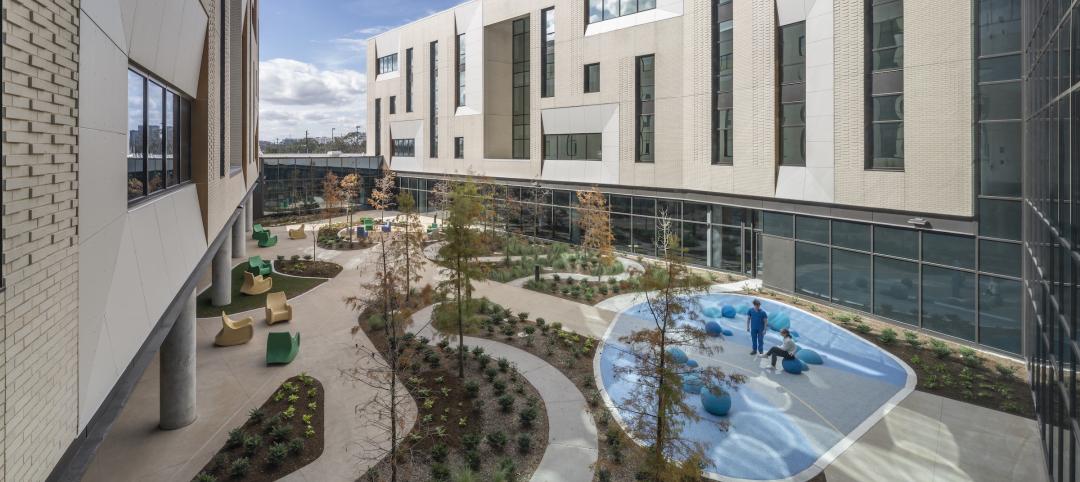Analysis of Stimulus Data Shows Program Delivering More Construction Jobs than Initially Estimated, Helping Boost Transportation Spending, Contractors Group Notes
Stimulus funded infrastructure projects are saving and creating more direct construction jobs than initially estimated, according to a new analysis of federal data released today by the Associated General Contractors of America. The analysis also found that more contractors are likely to perform stimulus funded work this year as work starts on many of the non-transportation projects funded in the initial package.
"The stimulus is one of the very few bright spots the construction industry experienced last year and is one of the few hopes keeping it going in 2010," said Ken Simonson, the association's chief economist. "The stimulus is saving construction jobs, driving demand for new equipment and delivering better and more efficient infrastructure for our economy."
Simonson noted that new federal reports show the $20.6 billion dollars worth of stimulus highway projects initiated over the past twelve months have saved or created nearly 280,000 direct construction jobs. That amounts to 15,000 jobs per billion dollars invested, well above pre-stimulus estimates that every billion invested in infrastructure projects would create 9,700 direct construction jobs.
The economist added that heavy and civil engineering construction employment was stable last month even as total construction employment declined by 75,000. Meanwhile, highway and road construction was one of the only areas to see an increase in spending last year even as total construction spending fell by $100 billion. The two figures are a clear sign the stimulus is having a significant, and stabilizing, impact on the industry, Simonson noted.
Simonson cited examples like Pittsburgh's Golden Triangle Construction Co as an indication of the benefits of investing in infrastructure. The company is hiring two new engineers and over 100 employees this spring just to perform $24 million worth of stimulus-funded projects this year.
It also is ordering new construction equipment to perform the work from Ripon, California-based Guntert and Zimmerman. As a result, the equipment maker saved 40 jobs on its assembly line. And thanks to its stimulus work, Golden Triangle decided to complete construction of its delayed headquarters, providing even more local construction jobs.
Simonson cautioned however that overall declines in construction activity have, and likely will continue to overshadow the benefits of the stimulus. "The stimulus will keep a bad situation from deteriorating further," Simonson said. "That may not make for great headlines, but it is welcome news for construction workers anxious to continue receiving paychecks."
Related Stories
Multifamily Housing | Mar 14, 2023
Multifamily housing rent rates remain flat in February 2023
Multifamily housing asking rents remained the same for a second straight month in February 2023, at a national average rate of $1,702, according to the new National Multifamily Report from Yardi Matrix. As the economy continues to adjust in the post-pandemic period, year-over-year growth continued its ongoing decline.
Affordable Housing | Mar 14, 2023
3 affordable housing projects that overcame building obstacles
These three developments faced certain obstacles during their building processes—from surrounding noise suppression to construction methodology.
Healthcare Facilities | Mar 13, 2023
Next-gen behavioral health facilities use design innovation as part of the treatment
An exponential increase in mental illness incidences triggers new behavioral health facilities whose design is part of the treatment.
Student Housing | Mar 13, 2023
University of Oklahoma, Missouri S&T add storm-safe spaces in student housing buildings for tornado protection
More universities are incorporating reinforced rooms in student housing designs to provide an extra layer of protection for students. Storm shelters have been included in recent KWK Architects-designed university projects in the Great Plains where there is a high incidence of tornadoes. Projects include Headington and Dunham Residential Colleges at the University of Oklahoma and the University Commons residential complex at Missouri S&T.
Mixed-Use | Mar 11, 2023
Austin mixed-use development will provide two million sf of office, retail, and residential space
In Austin, Texas, the seven-building East Riverside Gateway complex will provide a mixed-use community next to the city’s planned Blue Line light rail, which will connect the Austin Bergstrom International Airport with downtown Austin. Planned and designed by Steinberg Hart, the development will include over 2 million sf of office, retail, and residential space, as well as amenities, such as a large park, that are intended to draw tech workers and young families.
Performing Arts Centers | Mar 9, 2023
Two performing arts centers expand New York’s cultural cachet
A performing arts center under construction and the adaptive reuse for another center emphasize flexibility.
Architects | Mar 9, 2023
HLW achieves Just 2.0 label for equity and social justice
Global architecture, design, and planning firm HLW has achieved The International Living Future Institute’s (ILFI) Just 2.0 Label. The label was developed for organizations to evaluate themselves through a social justice and equity lens.
Architects | Mar 9, 2023
A. Eugene (Gene) Kohn, Co-Founder of Kohn Pedersen Fox, dies at 92
A. Eugene (Gene) Kohn, FAIA RIBA JIA, Co-founder of international architecture firm Kohn Pedersen Fox, died today of cancer. He was 92.
Affordable Housing | Mar 8, 2023
7 affordable housing developments built near historic districts, community ties
While some new multifamily developments strive for modernity, others choose to retain historic aesthetics.
Architects | Mar 8, 2023
Is Zoom zapping your zip? Here are two strategies to help creative teams do their best work
Collaborating virtually requires a person to filter out the periphery of their field of vision and focus on the glow of the screen. Zoom fatigue is a well-documented result of our over-reliance on one method of communication to work. We need time for focus work but working in isolation limits creative outcomes and innovations that come from in-person collaboration, write GBBN's Eric Puryear, AIA, and Mandy Woltjer.
















